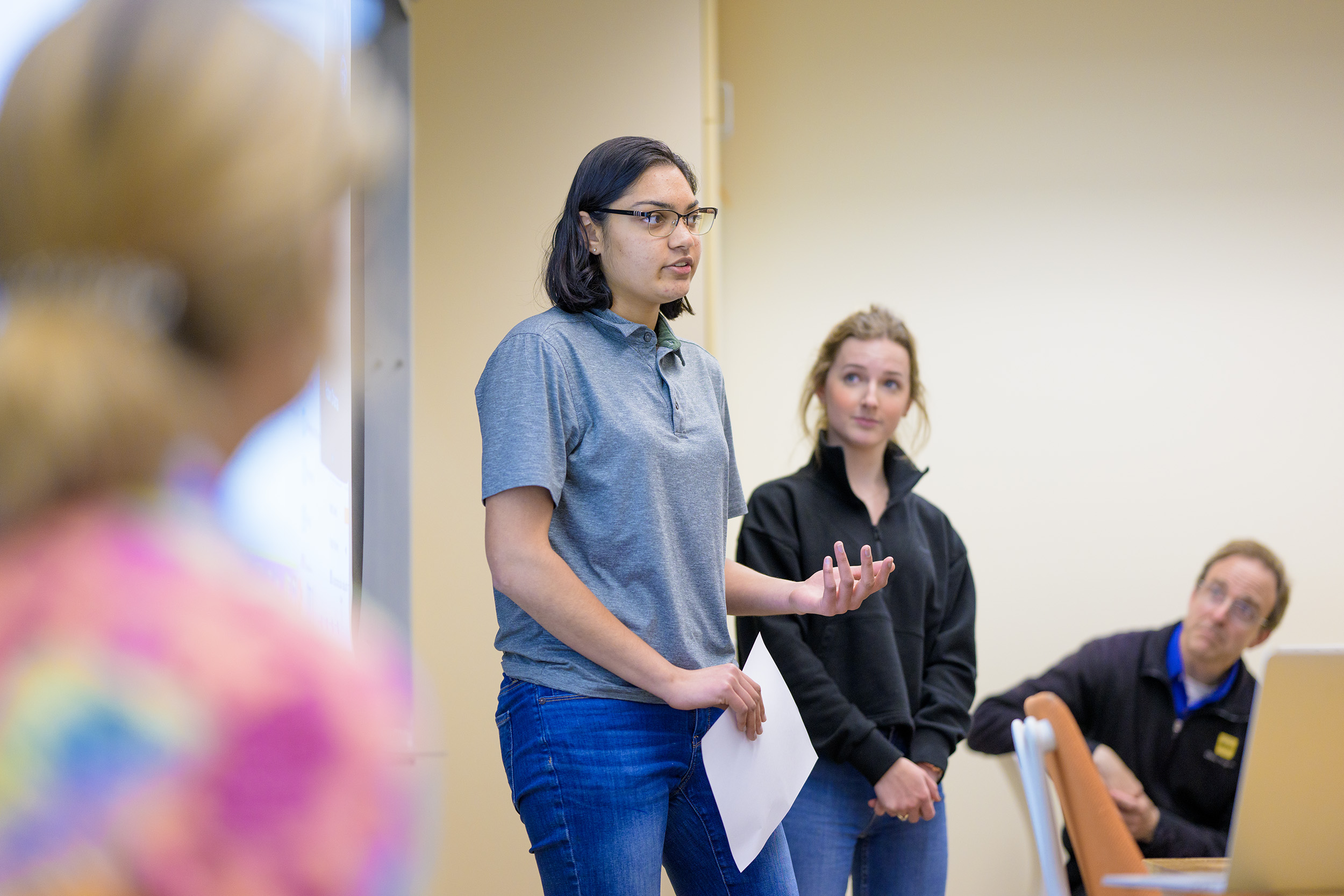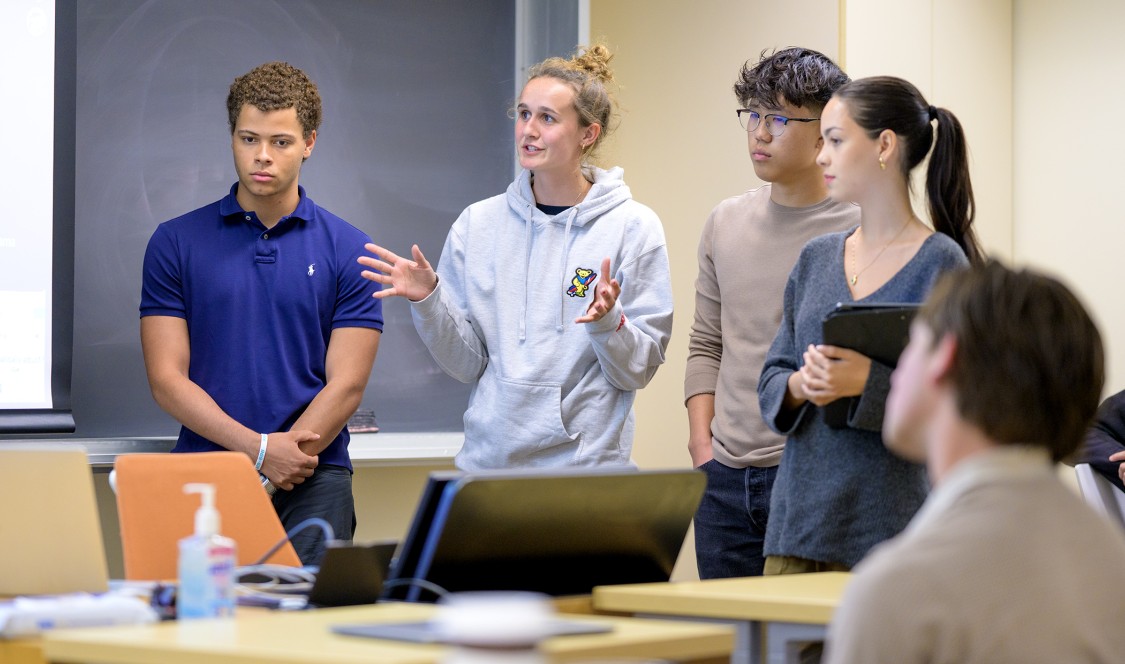As students in CMC’s inaugural “Codes of Life” course presented their final research projects, Prof. Emily Wiley beamed with pride.
“I was elated,” said Wiley, who co-taught and contributed to the design of the Spring 2023 course — the first for the new Kravis Department of Integrated Sciences (KDIS) program. Wiley, who is the incoming Director of Program Development at KDIS, collaborated on the design and teaching of this course with Founding Chair of KDIS, Prof. Ran Libeskind-Hadas, and Prof. Zach Dodds from the Computer Science department at Harvey Mudd College.
Yet it wasn’t the results of their research that made Wiley so proud of their students, it was how they had interpreted the data they’d gathered from their lab experiments, and how responsible they were in communicating their findings.
“I wanted them all to think very carefully about how they were going to talk about their discoveries, about what is a rigorous experiment, and what are solid data,” she said. “And I was really proud of their performances.”
The course is grounded in solving problems in the public sphere, bringing basic biology, chemistry, and computer science together to explore issues related to human health.
“To engage the students in the full cycle of scientific research, we started with formulating a question based on previous knowledge,” Wiley said. “Then they designed an experiment, and collected and analyzed the data. Next, they had to assess the strength of the data, how to change an experiment to improve it, and communicate the results.”

Anushka Shah ’26, who is majoring in Economics with a data science sequence, found the course’s “biggest value” was “the integration of biology and computing concepts to explore a real-world situation,” she said.
The course was framed by the growing challenge of antibiotic resistance in bacteria. Wiley secured a partnership with a local agency to analyze resistance genes and bacteria through the water reclamation process, with the goal of encouraging students to also consider influencing public policy as they worked on their final projects.
Students deployed various methodologies, such as DNA isolation, amplification, and sequencing, as they developed their final projects.
When the final day of class arrived, the students delivered their findings.
“When presenting, we had to take into account their perspectives and the scientific validity of our research,” said Shah. “In this sense, our final project was more than just a research paper or presentation — it required a strong research background, effective communication skills, and an understanding of the larger picture we were part of.”
Whether or not “Codes of Life” students pursue careers in science or water quality, the experience, Shah said, helped to practically prepare her for her post-CMC future. “The critical thinking processes developed in this class are invaluable in any setting and set the foundation for how to think about science from different perspectives -- whether as a person in the finance sector or as a business person,” she said.
For Wiley, the value of thinking like a scientist means “knowing about the natural world. It’s using facts so that you can ask good questions, and be able to think about your discoveries and context of the bigger picture, a body of knowledge,” she said.
In Fall 2023, more CMC students will get the opportunity to take “Codes of Life,” with Professors Libeskind-Hadas and Wiley, who are shaping the course based on what they learned from teaching the pilot. The fall course will include a research project addressing a current societal issue, and students will, according to Wiley, “scaffold the consideration of policy, ethics, economics, and other facets of the issue and various solutions into their work on the project. And, they’ll have time to consider the implications of their findings.”

